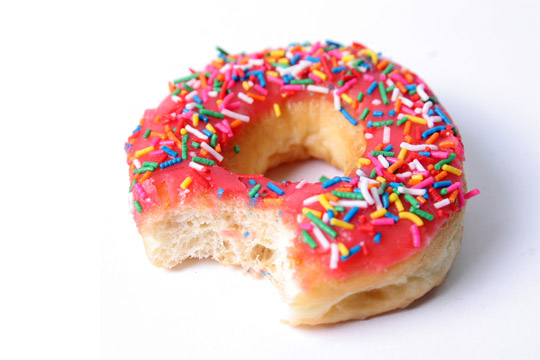
Reducing Food Waste in Foodservice
October 16, 2018 by Doreen Garelick, Dietetic Intern
Our intern Doreen attended a food waste summit for restaurants and compiled these tips to help food service operators redirect…
Nutrition 101
February 21, 2013

Dietetic Intern Dana Mortell and Senior Culinary Nutritionist Natalia Hancock list the foods most likely (and least likely) to induce heartburn, and how you can avoid stomach irritation.
The common term many people know as heartburn is a condition called GERD (Gastro Esophageal Reflux Disease). Also known as acid reflux, it’s caused by the indigestion of acid due to gastric rising to the esophagus and to the mouth. As many of us may know, this sensation can cause different severities of discomfort.
According to the International Foundation for Functional Gastrointestinal Disorders, some 44% of Americans have heartburn at least once a month and 7% have it daily. There are many components in the western diet that cause heartburn, as certain foods and drinks decrease pressure of the stomach opening, known as the lower esophageal sphincter. Lowered pressure causes irritation and relaxation of the sphincter, which leads to acid escaping the stomach.
Foods that are high in fat content such as pastries, nut butters, fried foods, bacon, and high-fat creams and cheeses should be avoided during bouts of heartburn. Alcoholic beverages, caffeinated drinks, pepper, chocolate, peppermint and spearmint can trigger symptoms, too. Tomatoes, in particular, are highly acidic and foods with tomato sauce such as pizza and pasta should be consumed in moderation.
Salty foods are prone to cause discomfort, along with seasonings with heating effects such as black pepper, chili pepper, hot sauce, salsa, wasabi, spicy mustard and even some forms of paprika. Irritation also occurs in herbs with cooling properties such as peppermint, spearmint and eucalyptus, found in many cough drops. It’s also best to avoid chewing gum, breath mints and mint-flavored antacid tablet, as they can make the situation worse.
Acidic fruits that contain high amounts of citric acid and should be consumed only in small amounts include lemons, grapefruits and oranges.
Luckily, we all have the ability to ease our heartburn by eating the right foods and creating better dietary patterns. Recommended foods are caffeine-free drinks and tea (excluding the spearmint and peppermint), low fat dairy products, whole-wheat grains and fruits we consider to be “antacids”. Examples of these fruits are apples, papayas and bananas. Lean meats are also recommended, such as skinless chicken, turkey, fish, top sirloin steak and pork tenderloin.
Consuming smaller and more frequent meals helps temper the effects of heartburn. Having an empty stomach can cause irritation, as does over-eating. In addition, hydrating during and in between meals also advances the flow of digestion. It is important to remain upright after eating and to avoid consumption three hours before bedtime to ensure sufficient digestion, which in turn decreases the risk of heartburn.
And finally remember to eat with balance in mind so foods are absorbed properly, as it is vital to incorporate all of the main food groups in to your meal.
Do you have any tips of your own to help control heartburn? Let us know in the comments below.

October 16, 2018 by Doreen Garelick, Dietetic Intern
Our intern Doreen attended a food waste summit for restaurants and compiled these tips to help food service operators redirect food waste from landfills.
Nutrition 101

Nutrition 101
September 26, 2018 by Doreen Garelick, Dietetic Intern
Ever notice headlines about rapid weightloss? Dietetic Intern Doreen Garelick looks deeper into a recent eye-catching headline to see if there's any truth behind it.
Connect
 Follow us on Twitter
Follow us on Twitter Friend us on Facebook
Friend us on Facebook Follow us on Pinterest
Follow us on Pinterest Follow us on Instagram
Follow us on Instagram Read our Blog
Read our Blog Watch videos on YouTube
Watch videos on YouTube Watch videos on Vimeo
Watch videos on Vimeo Connect with us on Linkedin
Connect with us on Linkedin Find us on Foursquare
Find us on Foursquare
Tweets by @SPEcertifiedBlog Search
Categories
SPE Certified Newsletter
Sign up for news on the latest SPE-certified venues, events and SPE updates.
We will never share your personal information with a third party.